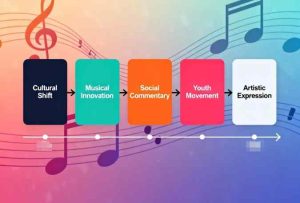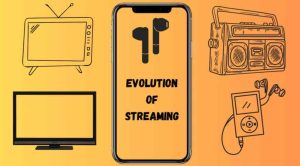
Mornings start early for most moms. The moment that tiny foot steps onto the floor beside your bed, the day begins—requests, questions, spilled milk, mismatched socks, breakfast negotiations. It’s a swirl of motion and noise that rarely pauses until bedtime stories are read and the last light clicks off. Even then, the mental load doesn’t quit. Somewhere in the chaos of schedules, laundry, work emails, and making sure everyone has eaten something green today, the idea of peace feels laughable. But it doesn’t have to be. Practicing mindfulness—even in small, imperfect moments—can change everything 🌿.
For a long time, I believed mindfulness belonged only to people who had uninterrupted hours and scenic porches. But after my second child was born and my anxiety spiked like a bad fever, I started searching for anything that might quiet the whirlwind in my head. Therapy was a gift, yes, but what helped me breathe again were micro-moments of awareness. Like noticing the warm weight of my baby sleeping on my chest instead of worrying about the dishes. Like the feeling of warm water on my hands while washing bottles. These tiny moments didn’t solve everything, but they gave me room to feel grounded instead of frantic.
Mindfulness isn’t about becoming a serene Zen master or never losing your temper. It’s about presence. And presence is something that busy moms need more than ever. The simple act of noticing your own breath while you’re stuck in traffic with a screaming toddler can mean the difference between spiraling and staying steady. I’ve had days where my entire self-care consisted of sitting in the bathroom for sixty seconds with my eyes closed, listening only to my breath, while my preschooler pounded on the door shouting about a lost dinosaur figurine. And you know what? That minute helped me keep going.
One of the easiest ways to begin integrating mindfulness into a hectic life is through mindful breathing. Not complicated pranayama or fancy yogic techniques, but simply tuning in. Inhaling fully through the nose, noticing how the air feels as it fills the lungs, then releasing it slowly. That’s it. I do this during diaper changes, while waiting in the car line, even mid-argument with my partner when I feel overwhelmed. This technique activates the parasympathetic nervous system, which promotes relaxation and helps reduce cortisol levels—an important factor in stress management and hormone balance.
A friend of mine, a mother of three who works remotely and juggles therapy appointments, Zoom meetings, and nightly science fair projects, found her peace in a mindfulness app. She didn’t have an hour to journal or do yoga, but five minutes before bed with a guided body scan meditation helped her sleep better and reduced her nightly tension headaches. Many high-CPC wellness tools like “guided meditation,” “stress relief apps,” and “mindfulness for anxiety” cater specifically to overstretched parents and can be real lifelines when used consistently 📱.
Even something as mundane as washing dishes can be turned into a mindfulness ritual. Instead of rushing through the task while mentally listing everything left on your to-do list, try anchoring into the sensory experience. Feel the warmth of the water, the texture of the sponge, the scent of the soap. It sounds simple, maybe even silly, but it’s in these small, repetitive tasks that the mind finds opportunities to rest. A neighbor once shared that her kitchen sink had become her meditation space — her one moment of solitude while her kids watched cartoons in the other room.
Gratitude, when practiced mindfully, is another powerful tool for moms feeling overwhelmed. It doesn’t have to be grand or performative. It’s as gentle as noticing the way your baby smiles at you while breastfeeding or the soft sound of your child’s breathing as they nap. I keep a small notebook in the kitchen drawer and jot down one moment from each day that made me pause. Some days it’s as small as “finally drank a hot coffee,” other days it’s deeper, like “my daughter said I was her safe place.” These entries build over time, forming a quiet foundation of resilience.
Walking meditation has also been unexpectedly effective for me. With a stroller or a baby carrier, I’d head outside and simply notice—feet against pavement, the movement of trees, a neighbor’s dog barking. This low-impact mindfulness technique doesn’t require a babysitter or a studio, just a sidewalk and a few deep breaths. The combination of gentle physical activity and sensory awareness helps with anxiety relief, improves sleep, and boosts emotional regulation—all things moms desperately need.
One common struggle among new and seasoned mothers alike is racing thoughts—mental chatter that never seems to quit. This is where mindfulness-based cognitive strategies come in. When you find yourself spiraling (“I’m not doing enough,” “Why can’t I get anything right?”), try labeling the thoughts gently: “That’s worry,” “That’s comparison.” This creates a little space between you and the storm in your mind. A therapist once told me that thoughts are like clouds—we can watch them pass without getting caught in their rain. This has saved me during sleepless nights and long, tearful tantrums alike.
Sensory grounding is another favorite, especially in moments of panic or emotional overload. One particularly chaotic morning when both kids were crying and I hadn’t even had a sip of water yet, I stopped, placed my hand over my heart, and focused on what I could see, hear, feel, smell, and taste. This technique immediately brought me back into my body. It’s practical and portable—something you can do in the middle of a grocery store meltdown or a bedtime struggle.
Technology, often seen as the enemy of mindfulness, can also be an ally when used intentionally. Smartwatches that remind you to breathe, mindfulness podcasts, short breathing exercises on TikTok, or noise-canceling headphones to escape overstimulation—these are not indulgences. They are lifelines for the modern mom trying to stay afloat in a sea of multitasking and mental overload 🎧.
Ultimately, the most transformative aspect of mindfulness for busy moms isn’t about becoming calmer—it’s about being kinder. To ourselves. Because the pressure to do it all perfectly is heavy, and mindfulness helps us notice when we’re being too hard on ourselves. When we pause, we can ask better questions: “What do I need right now?” or “Is this expectation reasonable?” That kind of compassionate awareness can change the entire rhythm of a day.
Mindfulness, in its essence, is presence without judgment. And for mothers, that starts by offering ourselves the same grace we so freely give our children. It’s not about escaping the mess, the noise, or the stress. It’s about being in it fully, and still finding space to breathe.








